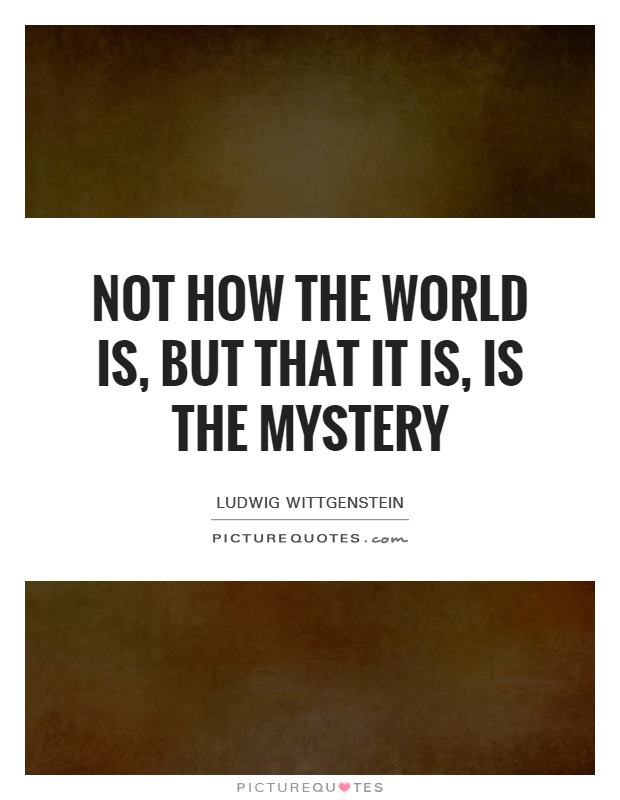Not how the world is, but that it is, is the mystery

Not how the world is, but that it is, is the mystery
Ludwig Wittgenstein, a renowned Austrian-British philosopher, is often considered one of the most influential thinkers of the 20th century. His work has had a profound impact on various fields, including philosophy, logic, and language. One of Wittgenstein's most famous quotes is, "Not how the world is, but that it is, is the mystery." This statement encapsulates his unique perspective on the nature of reality and the limitations of human understanding.Wittgenstein was deeply interested in the nature of language and its relationship to reality. He believed that language was not simply a tool for describing the world, but that it actually shaped our perception of reality. In his early work, Wittgenstein argued that language was a system of symbols that represented the world in a straightforward and unambiguous way. However, he later came to reject this view, realizing that language was much more complex and ambiguous than he had previously thought.
In his later work, particularly in his seminal work "Philosophical Investigations," Wittgenstein explored the idea that language is a social practice that is deeply intertwined with our everyday experiences and interactions. He argued that language is not a fixed and static system of symbols, but rather a dynamic and fluid medium that is constantly evolving and changing. This view led Wittgenstein to the conclusion that the meaning of words is not determined by some objective reality, but rather by the way they are used in specific contexts.
Wittgenstein's statement, "Not how the world is, but that it is, is the mystery," reflects his belief that the most fundamental mystery of existence is not the nature of reality itself, but rather the fact that there is something rather than nothing. He believed that our understanding of the world is limited by the constraints of language and that we can never fully grasp the true nature of reality. Instead of trying to uncover the ultimate truth about the world, Wittgenstein encouraged us to embrace the mystery of existence and to appreciate the richness and complexity of our lived experience.












 Friendship Quotes
Friendship Quotes Love Quotes
Love Quotes Life Quotes
Life Quotes Funny Quotes
Funny Quotes Motivational Quotes
Motivational Quotes Inspirational Quotes
Inspirational Quotes